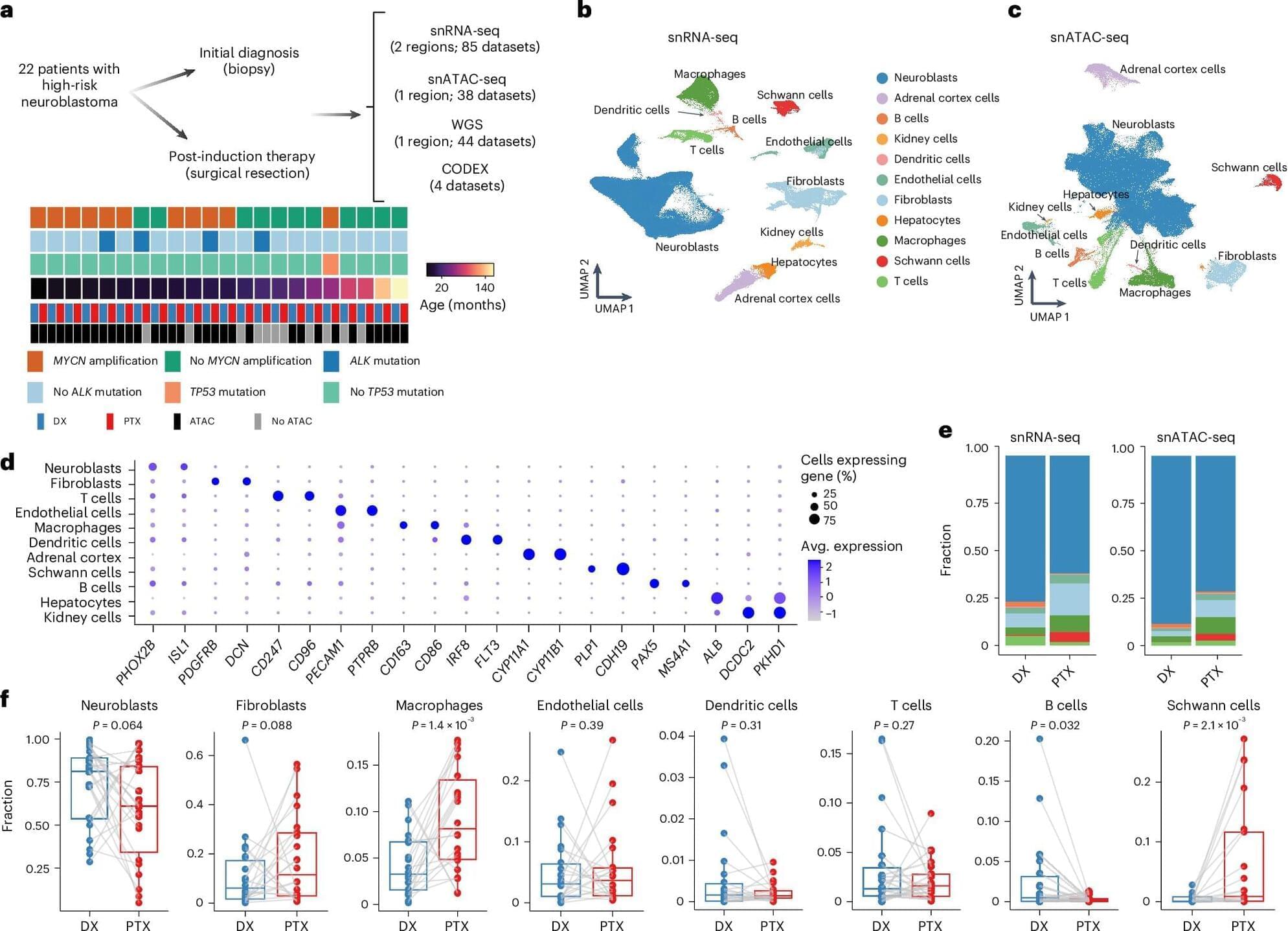Researchers at Children’s Hospital of Philadelphia (CHOP) developed a longitudinal atlas of neuroblastoma, a common and potentially deadly childhood cancer, to gain a deeper understanding into precise molecular mechanisms underlying why and how certain treatments eventually become ineffective.
The findings, which offer insights that could potentially lead to new personalized medicine approaches in neuroblastoma treatment, were published today in the journal Nature Genetics.
Despite significant advances in the standard of care, the 5-year survival rate of high-risk neuroblastoma after diagnosis remains less than 50%. Neuroblastoma cells within the same tumor can vary greatly, which creates challenges in treatment efficacy. Until now, the scientific community lacked understanding of how the tumor microenvironment changes during treatment.
